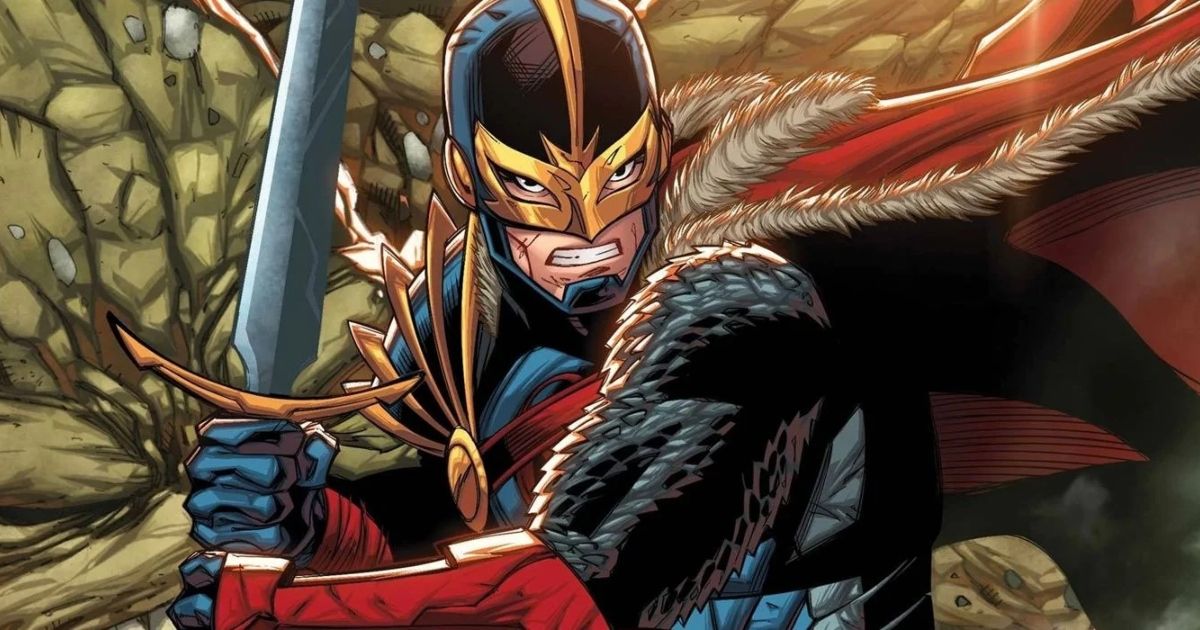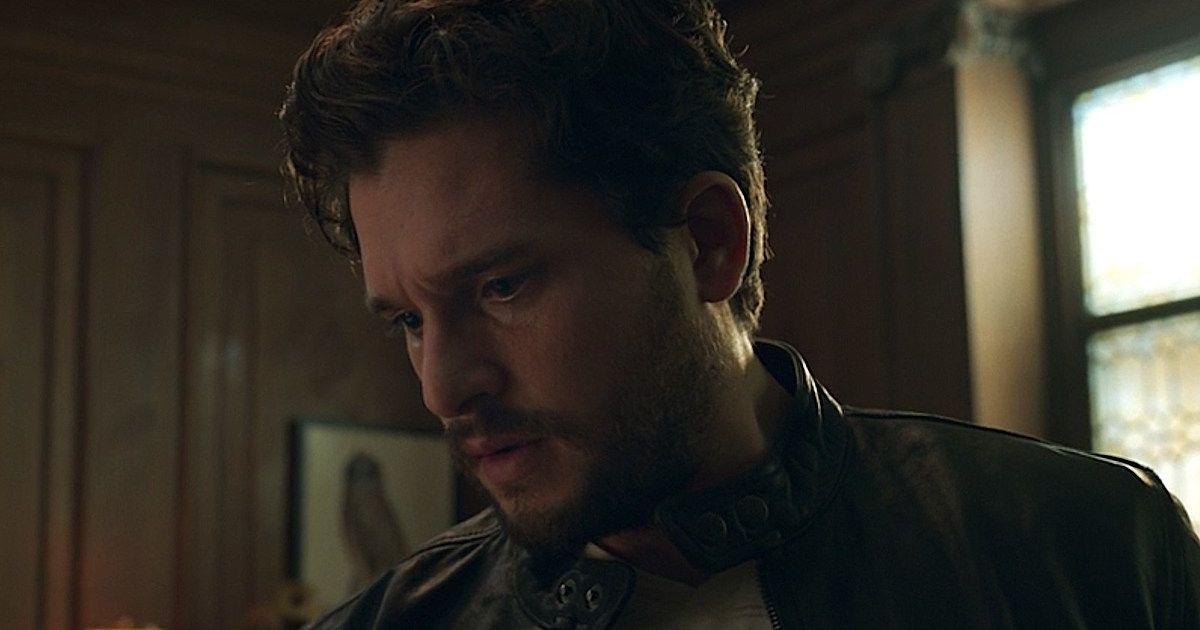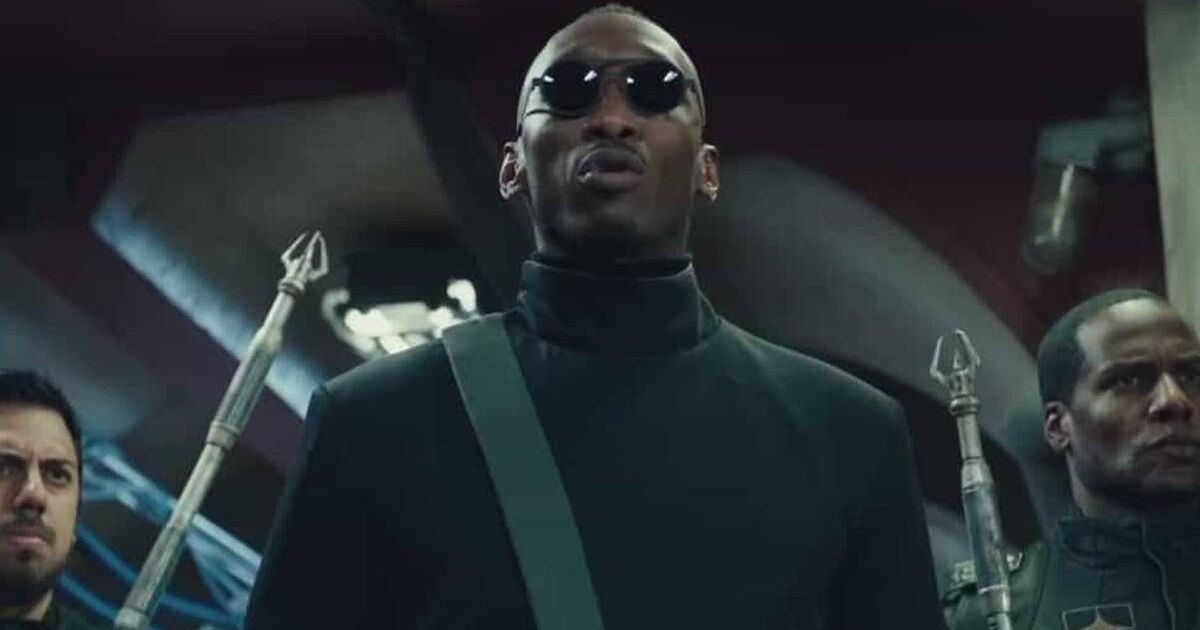The creativity throughout Marvel Comics, despite their distinct brand in the superhero genre, spans past the binaries of superheroes and supervillains. The creative team behind the greatly adored publishing giant, indeed, sources other forms of inspiration when designing the characters that will take to the pages of their books. The Black Knight, for example, first sprung from the Arthurian legend of the same name, and, in fact, first appeared before Marvel Comics was established as Marvel Comics. He was created by Stan Lee and Joe Meneely for Atlas Comics during the Silver Age and survived the transition from brand to brand.
The Black Knight, much like other lesser-known characters that flood Marvel Comics, has patiently waited for his turn to make the grand leap from print pages to the silver screen. Academy Award-winning director Chloe Zhao made her Marvel Studios debut as she introduced the Eternals in late 2021. The story revolves around the core collective of extraterrestrial humanoids who have tailored their identities to pair with a variety of international mythologies. Their purpose was to oppose any threats to humanity and free the universe from conflict. Though Eternals broke ground for Marvel Studios, being both a woman-led MCU movie and the first to show a gay on-screen kiss, Zhao's movie struggled to exceed expectations set into place by fans who were curious about the uncommon subsidiary of superheroes, resulting in the film earning its place as Marvel Studios’ lowest critically-reviewed film to date (according to Variety). The underperforming addition to the MCU did, however, succeed in introducing new characters that are expected to recur throughout upcoming projects. Dane Whitman (Kit Harington) made his first appearance as a supporting character soon to reach the status of becoming the main character as the Black Knight is promised to return. Here's a breakdown of The Black Knight.
Who is Black Knight?
Much like other aliases, monikers, and alter-egos throughout the Marvel Universe, the title of The Black Knight has been passed down from character to character. Sir Percy of Scandia was the first iteration of the Black Knight while Marvel Comics was operating under the Atlas Comics branding. Sir Percy was succeeded by Nathan Garrett, who was the second to assume the responsibilities of The Black Knight, this time in Marvel Comics. He was a descendant of Sir Percy, implying that The Black Knight identity works itself through family trees. Nathan was introduced in the mid-60s, with enough time given for the transfer of power between each man behind the moniker. Shortly after Nathan was granted the right to declare himself as The Black Knight, the role was bestowed upon his nephew, Dane Whitman. Devout Catholic Augustine da Luc was featured as the most religiously zealous version of The Black Knight, who instilled it in himself that he was responsible for the mass conversion to Catholicism. A fourth, unnamed version of The Black Knight was the first woman interpretation of the character. She was first written into the limited series Vengeance, and is set to reappear in the Young Masters. Since her role in the comics was fleeting, she has yet to be mentioned further.
Is Black Knight Good or Evil?
The Black Knight is not consistently a hero nor are they consistently a villain; they bend at the will of the Ebony Blade and its demands. While Sir Percy was more heroic during his time as the Black Knight after contesting against the traitorous Mordred the Evil, Nathan's more sinister nature deemed him less worthy of carrying on the legacy of the Black Knight and wielding the Ebony Blade for himself. He joins the ranks of the supervillain conglomerate Masters of Evil and establishes that his time as the Black Knight is to be viewed as a villain. However, his version of the Black knight does not act as the definitive personification of the character, only a stint throughout the character's history.
Dane, on the other hand, is depicted as a hero, as he fights alongside heroic organizations including the Avengers. As it is Dane who is called to accept his fate as Black Knight in the Marvel Cinematic Universe, his moral alignment is assumed to be more "good" than the "evil" variations of the character.
What Does Black Knight Mean for the MCU?
Eternals' post-credits scene has set up a number of future plans for The Black Knight in the MCU. In the scene, Dane is summoned by the Ebony Blade, and it is assumed that he understands that he has been called upon to restore the presence of the Black Knight. It has been confirmed that the upcoming Blade reboot, starring Mahershala Ali, has connections to Dane as the Black Knight, as Ali's voice work can be heard echoing through the film's final moments. Upcoming projects for either character are yet to be determined, though there's heavy speculation that the MI-13 storyline may eventually weave itself further into the expanding MCU. There have also been the beginnings of the Midnight Sons scattered throughout recent Marvel Studios productions. Black Knight wasn't originally included in the Midnight Sons team that was first in the comics, but the MCU's more recent, supernatural angle would allow this fantasy-inspired character to slip into its lineup with ease. The open-ended potential for Black Knight as he is now canonically incorporated into live-action could boil down to a Black Knight featured film or series of his own, and thus, properly usher in his origin story. As Marvel Studios explores subgenres in comic book cinema, there is more room for a film founded on fantasy to take place.




